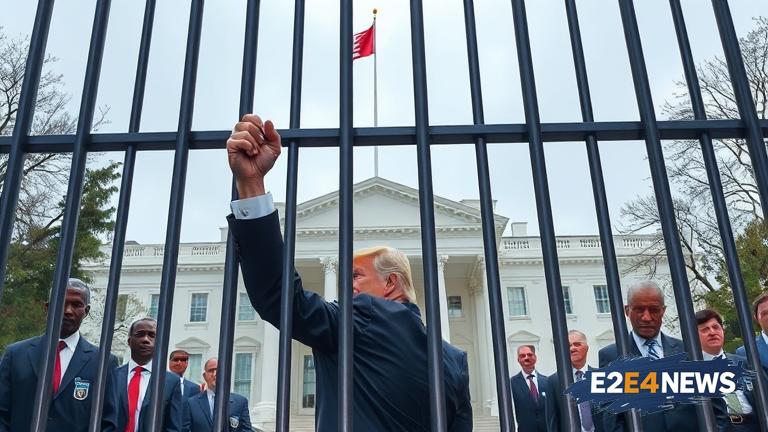The debate over cashless bail systems in the United States has gained significant attention in recent months, with former President Donald Trump being the latest to weigh in on the issue. Trump has expressed his opposition to cashless bail systems, arguing that they are contributing to rising crime rates and compromising public safety. The cashless bail system, which has been implemented in several states, aims to reduce the number of people held in jail awaiting trial simply because they cannot afford to pay bail. However, critics like Trump argue that this system allows dangerous criminals to be released back into their communities, where they can potentially commit further crimes. Trump’s comments on the issue have sparked a heated debate, with some arguing that the cashless bail system is a necessary reform to address issues of racial and socioeconomic disparities in the justice system. Others, however, share Trump’s concerns and believe that the system is being abused by repeat offenders. The issue of bail reform has been a contentious one in the US, with many arguing that the current system is unfair and disproportionately affects low-income communities and communities of color. The cashless bail system is designed to address these concerns by using a risk-based assessment to determine whether a defendant should be released from jail pending trial. However, the implementation of this system has been met with resistance from some law enforcement officials and prosecutors, who argue that it is too lenient and allows dangerous criminals to be released back into their communities. Despite these concerns, many advocates of bail reform argue that the cashless bail system is a necessary step towards creating a more just and equitable justice system. They point to studies that have shown that the majority of people held in jail awaiting trial are not a threat to public safety and are simply unable to afford bail. These advocates also argue that the cashless bail system can help to reduce the significant costs associated with holding people in jail, which can be a significant burden on taxpayers. However, others argue that the system is not without its flaws and that more needs to be done to address the root causes of crime and to support victims of crime. The issue of bail reform is complex and multifaceted, and it is likely that the debate over cashless bail systems will continue in the coming months and years. As the US continues to grapple with issues of crime and public safety, it is clear that the cashless bail system will be an important part of the conversation. The system has been implemented in several states, including New York and California, and has been the subject of significant controversy and debate. While some have praised the system as a necessary reform, others have criticized it as being too lenient and ineffective. The issue of bail reform is not limited to the US, as many countries around the world are also grappling with issues of justice and public safety. However, the US is unique in its use of a cash-based bail system, and the move towards a cashless system is being closely watched by other countries. As the debate over cashless bail systems continues, it is clear that there are valid arguments on both sides. While the system has the potential to create a more just and equitable justice system, it also raises concerns about public safety and the potential for abuse. Ultimately, the success of the cashless bail system will depend on its implementation and the ability of lawmakers and justice officials to address the complex issues surrounding bail reform. The US justice system is complex and multifaceted, and the issue of bail reform is just one of many challenges that it faces. However, by addressing the issues surrounding bail reform, the US can take an important step towards creating a more just and equitable society. The cashless bail system is not a panacea, but it has the potential to be an important part of the solution. As the US continues to evolve and grow, it is likely that the issue of bail reform will remain an important part of the conversation. The debate over cashless bail systems is a complex and contentious one, and it is clear that there are valid arguments on both sides. However, by engaging in a thoughtful and nuanced discussion, the US can work towards creating a more just and equitable justice system. The issue of bail reform is not just a matter of public safety, but also of social justice and equality. By addressing the issues surrounding bail reform, the US can take an important step towards creating a more just and equitable society. The cashless bail system has the potential to be an important part of this solution, but it is just one part of a larger conversation about justice and public safety.
